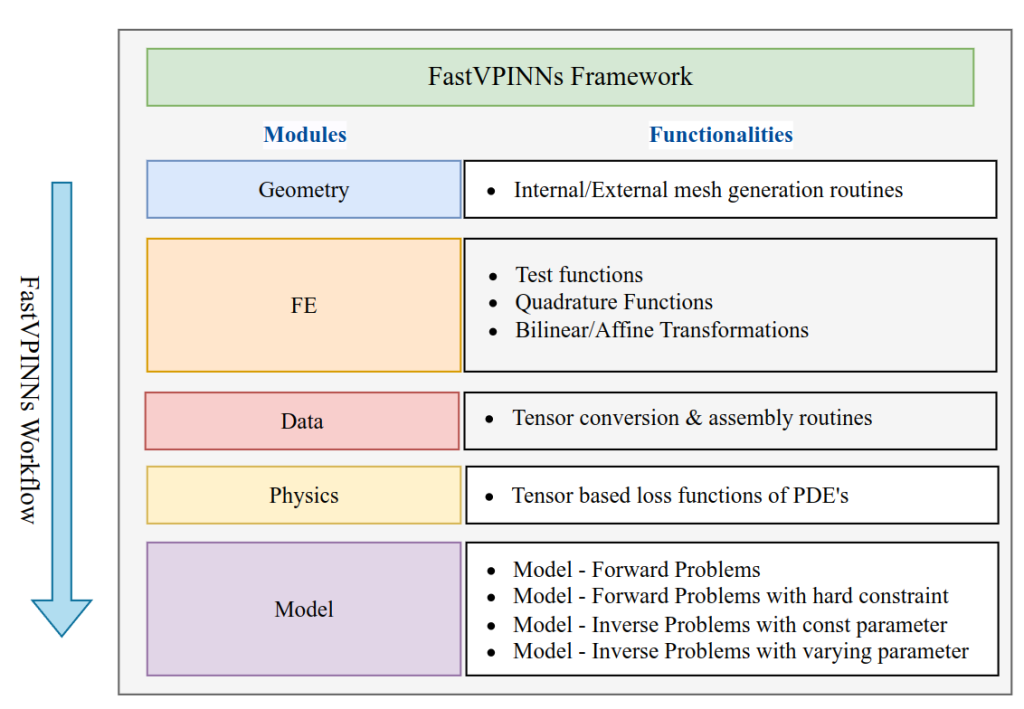FastVPINNs – An efficient tensor-based Python library for solving PDEs using hp-VPINNs The existing hp-VPINNs framework faces challenges in handling complex geometries and increased training times with more domain elements. Anandh et al. (2024) present FastVPINNs, addressing these issues by using bilinear transformation for complex geometries and tensor-based loss computation, achieving up to 100 times faster performance. Efficient and User-Friendly: Built with TensorFlow-v2.0, FastVPINNs offers a straightforward Python API, enabling users to solve forward and inverse PDE problems like Poisson, Helmholtz, and Convection-Diffusion equations with minimal code—often fewer than six API calls. This design enhances accessibility for a broad range of users.
Improved Performance: FastVPINNs reduces training time and improves accuracy compared to traditional PINNs, especially for problems with high-frequency solutions.
Practical Applications: As an open-source implementation of hp-VPINNs with tensor-based loss computation, FastVPINNs is suitable for solving complex PDE problems, making it useful for applications that require handling intricate geometries and extensive domain elements.
Project Page: https://airexlab.cds.iisc.ac.in/?page_id=86
Package can be found on GitHub: https://github.com/cmgcds/fastvpinns.
Can be installed using:> pip install fastvpinns
For more detailed information refer to the documentation at https://cmgcds.github.io/fastvpinns/index.html.
The package was published in the Journal of Open Source Software: https://joss.theoj.org/papers/10.21105/joss.06764




